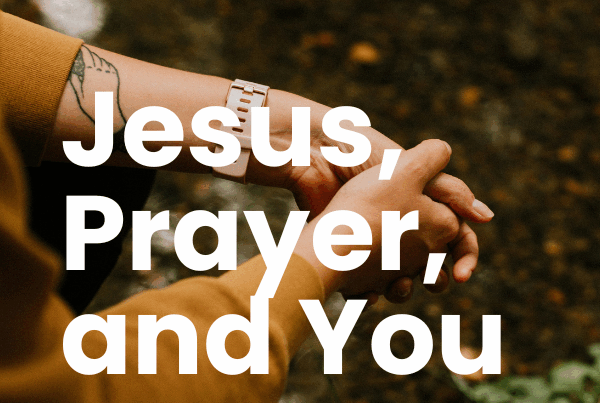
The most important thing in the Christian life and ministry is not knowledge, zeal, or giftedness. It is love. Without love, Paul says, we are nothing. With love, even the weakest Christian can reflect Christ.
When I first came into Calvary Chapel, what struck me was not polished programs or impressive preaching—it was love. I came in raw, fresh out of drugs, only months into following Jesus, and still very rough around the edges. At baptism, I nervously stumbled through my testimony and embarrassed myself, but instead of being mocked, I was embraced. Soon after, I found myself at a Bible school in Austria, where to my surprise, others saw God’s hand on my life when I could not. Later in London, still needy and broken, I was given friendship, time, and care. They believed in what God was doing in me long before I did. That love marked me.
Few people show the contrast between life without love and life compelled by love more clearly than Paul. Before Christ, Saul of Tarsus was zealous but loveless, “breathing threats and murder against the disciples of the Lord” (Acts 9:1). At Stephen’s stoning, he saw something that pierced him: a man praying for his killers. That kind of love could only be explained by Christ.
When Saul encountered the risen Jesus, everything changed. The love of Christ now compelled him (2 Corinthians 5:14). It was love that drove him back on his second missionary journey (Acts 15:36), saying to Barnabas, “Let us now go back and visit our brethren in every city … and see how they are doing.” His concern was not control—it was love for their growth. It was love that made him defend the Galatians’ freedom in Christ. Love carried him through beatings, shipwrecks, and prison, always asking: “How are they doing?”
And what happens when love is missing? Something always rushes in to fill the void—control, legalism, even sectarian pride. Sometimes that pride spills into slander of godly people who simply do not fit our brand. I have seen pastors who fell shunned instead of restored, men humiliated publicly for asking questions, and good, God-given authors cancelled without reason at conferences or online. I have made mistakes too—letting zeal or frustration wound instead of build up. It hurts to admit, but I want to grow. Paul reminds us in 1 Corinthians 13 that even knowledge, eloquence, or faith without love amount to nothing. Zeal without love does not produce maturity; it produces casualties. But what we win people with is what we win them to. If we win them with control, they will control. If with pride, they will look down on others. But if we win them with love, they will learn to love.
This is why Paul prayed for the church in Ephesus to be rooted and grounded in love (Ephesians 3:14–21). Roots keep a tree steady in storms; a foundation gives strength to what is built. Strong Christians are not those who shout the loudest or know the most, but those who love the deepest.
This was the way of Jesus Himself. “By this all will know that you are My disciples, if you have love for one another” (John 13:35). His Great Commission was to be carried out in the spirit of the Great Commandment: love God and love your neighbor (Matthew 22:37–40). Jesus touched lepers, wept with the grieving, and welcomed sinners to His table. Even His corrections were shaped by compassion. His cross was the ultimate expression of love.
Even one of the earliest church fathers, Tertullian (c. 160–220 AD), noted of Christians: “See how these Christians love one another.” Their love was their apologetic. We cannot love people into the kingdom, but love authenticates the message we preach.
I remember once walking into the workshop of a new believer and recognizing the smell of marijuana. I asked him about it, and he denied it. A week later, ashamed, he confessed that he had lied. Instead of shaming him, I reassured him of my love. That melted him, filled him with a sense of God’s kindness, and soon he walked away from smoking altogether. That is the method of Jesus: truth in love, grace that leads to repentance, kindness that transforms lives. Arguments rarely melt hearts—but love does.
Of course, the challenge is loving those who seem unlovely. Many Christians make the mistake of loving only on the basis of how lovable people are. But that is not how God loves us. He loved us when we were unlovely. “We love because He first loved us” (1 John 4:19). That is the only way we can love others well.
And love must not only mark our lives inside the church but also between churches and pastors. Too often, ministries that are both gospel-centered compete instead of encourage. I once heard the saying, “If they ain’t dead, they aren’t read.” At first, it sounded wise, but then I realized its danger. Jesus rebuked the religious leaders for honoring dead prophets while rejecting the living ones (Matthew 23:29–30). Sectarianism does the same today—despising faithful servants simply because they are different from us. Sometimes it is sectarian pride that even leads to slander of godly people. That is not the way of Christ.
Years ago, I was at a missions conference where Frank Drown—friend of Nate Saint and Jim Elliot—spoke of his work among the Waorani in Ecuador and retrieving the bodies of the slain missionaries. Pastor Chuck Smith sat listening with tears in his eyes. Afterward, he said something like, “It makes us wonder what we have done with our lives.” At first, I thought of that simply as humility—and it was. But looking deeper, I realized that humility is born of love. That is why Paul puts love first in the fruit of the Spirit (Galatians 5:22). Every other virtue flows out of it. Love births humility, gentleness, patience, and kindness. Chuck’s posture that day was not just humility for humility’s sake; it was love for Christ and His body, expressed in servant-hearted humility.
C. S. Lewis warned of another danger in The Four Loves. He wrote that “those like myself whose imagination far exceeds their obedience are subject to a just penalty; we easily imagine conditions far higher than any we have really reached … and make others, and make ourselves, believe that we have really been there.” He was speaking about love itself—how easy it is to imagine we love far more than we truly do. Sectarianism feeds on that illusion. We talk as if we are deeply loving, yet in practice we can be harsh, controlling, or divisive. That is why Paul’s prayer in Ephesians 3 is so vital. Love must be the foundation.
Personally, I have benefited from voices across the spectrum—Lloyd-Jones, Moody, Spurgeon, Bonhoeffer, Luther, the Church Fathers, and pastors in my own lifetime from many traditions. Paul’s words still ring true: “What then is Apollos? What is Cephas? What is Paul? … All are yours, and you are Christ’s, and Christ is God’s” (1 Corinthians 3:5, 21–23). If the love of Christ compels us, we cannot treat fellow servants as rivals. Imagine if Calvary Chapel churches were known not for competing but for blessing others—that would be the apologetic Jesus desires.
Love was also at the heart of Calvary Chapel’s beginnings. Pastor Chuck welcomed the hippies when many churches turned them away. That liberty bore fruit—fresh worship, bold evangelism, and hunger for God’s Word. If we drift into control, legalism, or pride, we lose what made us fruitful. Verse-by-verse teaching or casual style were never our true distinctive—love was. If we want God to work through us today, we must return again to love.
And we must extend that love to the next generation. Young people do not need to be forced into our mold; they need to be loved as Christ forms them into His image. Paul warned that some in the church would try to draw disciples after themselves (Acts 20:30). When we demand conformity to ourselves, we are doing just that. But when we love, we create space for the Spirit to transform.
I have seen this personally in mentors like Dave Shirley. He walked with me through early marriage struggles, reminded me that God wanted me to be myself, prayed with me, and even read Timothy aloud by my bedside when I had overslept. That love marked me. That kind of love shapes disciples and builds strong churches. I believe it is still the love Jesus is looking for among us.
Looking back, what has shaped me most has not been strategies or charisma but love—the patience of believers, the generosity of those who invested in me, the kindness of mentors who believed in me, the steady care of leaders who walked with me through failure. Paul was transformed by Christ’s love. His prayer was that believers would be rooted in it. His mission was fueled by it. Jesus Himself made love His unmistakable mark.
If we lose love, we lose everything. If we hold on to love, we reflect Christ. Love for God. Love for one another. Love for those who do not yet know Him. Love between churches. Love that gives the next generation liberty while trusting God to shape them. That must remain our supreme distinctive.
Paul’s prayer in Ephesians 3 is still the prayer we need today—that we would be rooted and grounded in love and know the immeasurable love of Christ. I encourage you: pray this prayer for yourself, your family, your church, and our movement. And as we grow older, may we guard our hearts carefully so that we do not drift into pride or control but finish well—still marked by love for God, love for His people, and love for a world that desperately needs Him.
We need to remember that even the Ephesian church, who knew the Word and were doctrinally correct, heard Jesus Himself say: “You have left your first love.” Think about that—Jesus Himself said it. If it could happen to them, it can happen to us. That is why we must keep returning to the supremacy of love.
Pastor Chuck Smith put it simply:
“Love is superior to anything and everything else in the Christian life. You can have the greatest faith in the world, but if you don’t have love, you are nothing.”
“Gifts without love are worthless. Works without love are futile. Knowledge without love puffs up. Love is the more excellent way.”
“The measure of a man’s ministry is not how many people come, nor how big the budget is, but how much love is there.”
Those words are still true. They are still the measure. And they are still the more excellent way.







